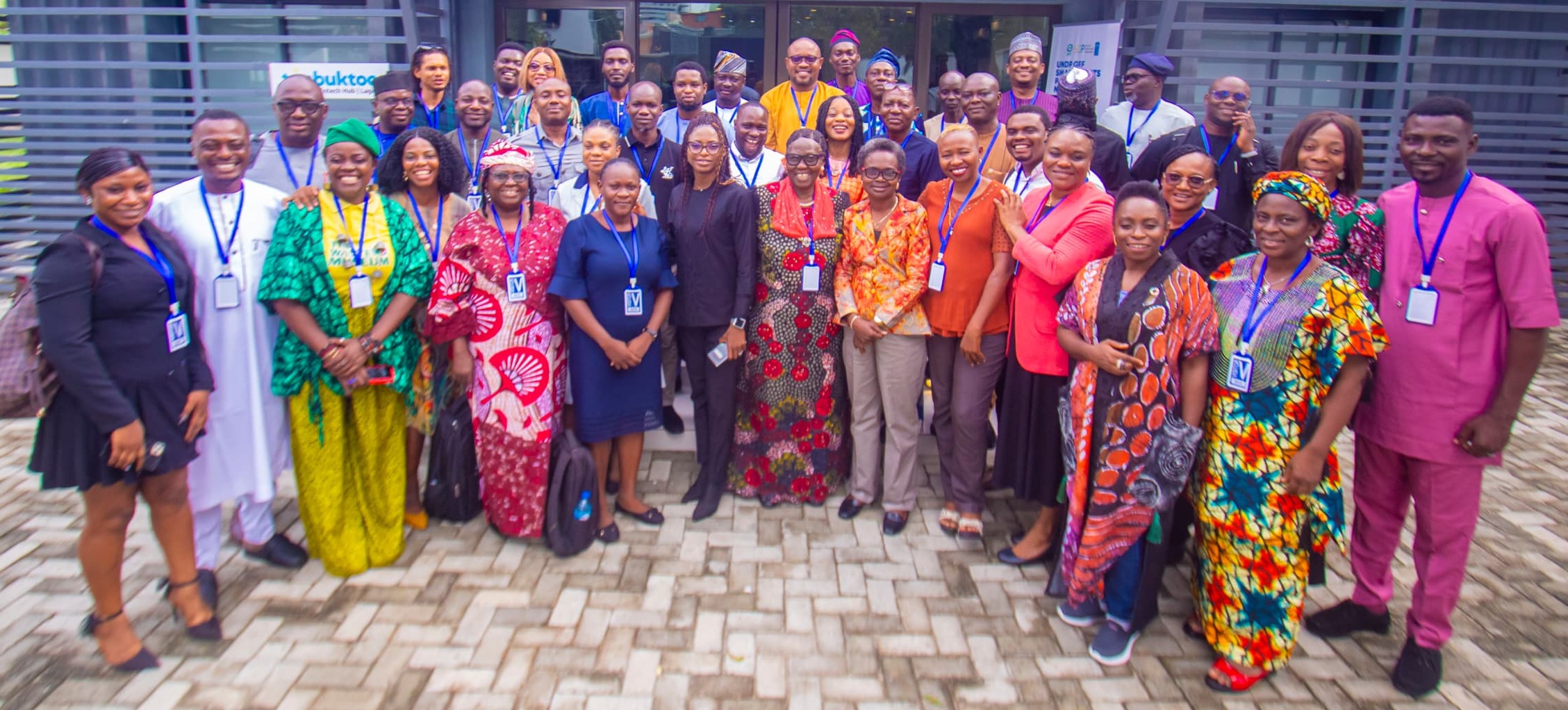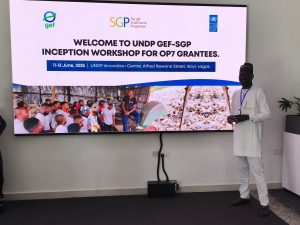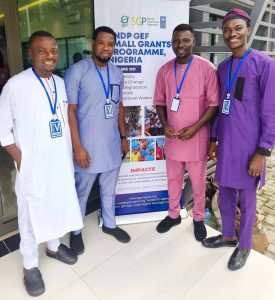
By: Paul Gwumapan Joseph
The Climate and Sustainable Development Network (CSDevNet) was among the 39 civil society organizations (CSOs) that participated in the two-day inception workshop organized by the United Nations Development Programme (UNDP) Global Environment Facility – Small Grants Programme (GEF-SGP) Nigeria, held from June 11–12, 2025.
The workshop took place at the UNDP Innovation Centre in Ikoyi, Lagos and officially introduced grantees under Operational Phase 7 (OP7) to the programme’s implementation modalities while fostering innovation, collaboration, and knowledge exchange.
Jointly hosted by UNDP Nigeria and the GEF-SGP National Steering Committee, the workshop aimed to strengthen the capacity of CSOs in aligning local community projects with global environmental objectives.

CSDevNet was represented by its National Network Coordinator, Mr. Abu Monday, who participated in critical sessions on Memorandum of Understanding (MoU) reviews, project planning and execution, monitoring and evaluation, and sustainability strategies.
The National Coordinator of GEF-SGP Nigeria, Mrs. Ibironke Olubamise, in her opening remarks, underscored the importance of the SGP in empowering grassroots organizations to deliver real environmental impact. “The GEF-SGP OP7 is not just about funding projects,” she said. “It is about supporting bold ideas that respond to local needs while advancing global environmental goals through community-led action.”
In her presentation, Rose Agbo, Programme Manager of GEF-SGP Nigeria, called on grantees to be innovative in their approach and see local communities as active partners in change. “We must begin to see our communities not just as beneficiaries but as agents of change. The projects supported under OP7 must focus on resilience, climate adaptation, and sustainable livelihoods,” she added.
CSDevNet’s project under the GEF-SGP OP7 is titled “Addressing Land Degradation and Climate Change through Sustainable and Climate-Smart Agriculture in Coal Mining Communities in Enjema District, Ankpa LGA, Kogi State.”
The Enjema District, home to over 119,000 residents, relies heavily on artisanal coal mining, subsistence farming, and petty trading for livelihood. However, the area faces significant environmental degradation, pollution from coal mining, declining agricultural productivity, and increased food insecurity exacerbated by climate change.
To combat these challenges, CSDevNet’s intervention will implement a suite of community-focused solutions including climate-smart agricultural training, establishment of demonstration farms, formation of two farmers’ cooperatives (in fish and crop value chains), and the provision of inputs such as 20 tarpaulin fish ponds, 10,000 juvenile fish, 2,000 trees, 300,000 cassava cuttings, 900kg of maize seeds, and 300 tonnes of organic fertilizer.

The project also plans to install a solar-powered borehole to serve approximately 200 households and conduct awareness campaigns advocating for the phase-down of coal mining while promoting sustainable mining practices.
The inception workshop has not only equipped CSDevNet with strategic tools for effective implementation but has also paved the way for stronger collaboration with UNDP GEF-SGP and fellow grantees.
With the technical guidance and shared learning from the workshop, CSDevNet is poised to drive meaningful, community-led change in Enjema District and contribute significantly to Nigeria’s broader climate adaptation and land restoration goals.
As the workshop concluded, participants reaffirmed their commitment to implementing high-impact projects that align with national and international climate targets. For CSDevNet, this marks the beginning of a transformative journey toward environmental sustainability, resilience, and inclusive development in the heart of Kogi State.
